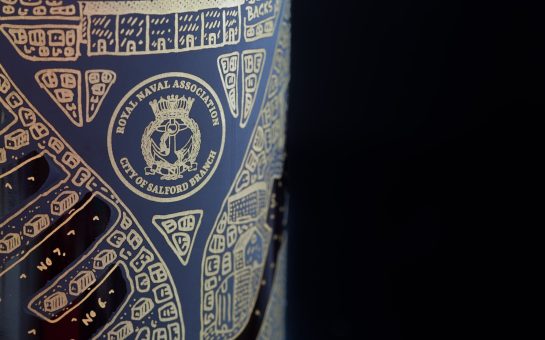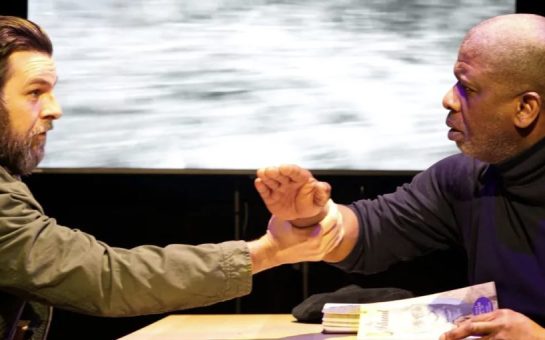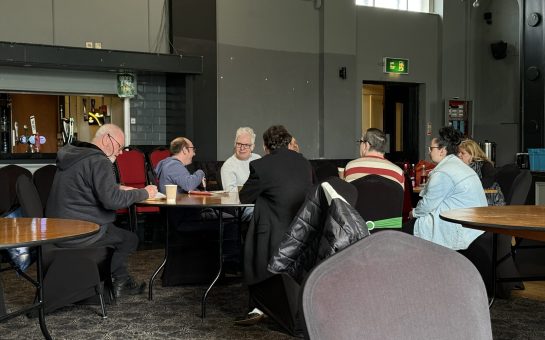It was an evening of unbridled emotion on the opening night of War Horse at The Lowry.
Originally a novel by former Children’s Laureate, Sir Michael Morpurgo, the story has been nothing short of a phenomenon, with an extensive cultural footprint.
Over the course of a decade, the critically-acclaimed National Theatre production alone has reached seven million people. Then came the Spielberg-directed adaptation in 2011, featuring British film powerhouses Benedict Cumberbatch and Tom Hiddleston, becoming the highest grossing World War I film until last year’s Wonder Woman.
As the play now embarks on its second UK tour, to last two years from 2017 to 2019, audiences are just as transfixed as ever by the simple tale of a boy and his horse.
The anticipation was palpable as the lights dimmed, as the audience was met with the folk voice of the Song Man, grounding the story to its roots of an early 1900s, rural Devon.
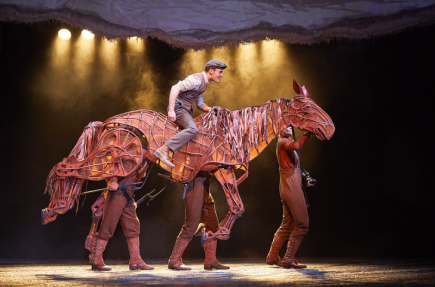 EMOTION: The plot shines a light on the beauty of life and the devastation of war
EMOTION: The plot shines a light on the beauty of life and the devastation of war
To the soft tunes we meet a small and shaky foal, Joey, and an equally skittish boy, Albert Narracott, who become fast friends. We feel the years pass complete with a growing chorus as the two learn about each other, followed by the magnificent introduction of a fully-grown Joey.
Following the outbreak of the First World War in the tale and Albert’s subsequent search for Joey on the battlefields, the sustained use of the Song Man provided a key thread through the performance, becoming an unexpected highlight.
No matter how far Albert and Joey were taken from home in their armed duties, the familiar and quietly rousing country songs take both the characters and audience back to the summer fields and a hazy youth.
Eventually not only becoming a way to escape the violence for a moment, but a melancholic, sombre reminder that Albert and Joey can never return to those days of innocence, as the ballad lyrics of hope and unity take on different meanings with all they have seen in war.
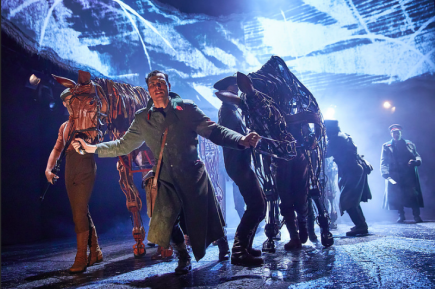 TRANSFIXING: The UK run lasts until 2019
TRANSFIXING: The UK run lasts until 2019
The cast, led by Thomas Dennis as Albert, gives a nuanced and careful insight into a swathe of relationships. Between horse and owner, soldier and captain, father and son.
Especially during the panicked desertion of the German captain, played by Peter Becker, his exchanges with the other soldiers showed the importance of hope, despite the apparent futility of their situation.
These scenes highlight that this hope can come from anywhere and whilst it may seem inconsequential, an unlikely brotherhood found with a lost horse for example, it is vital for survival.
The only aspect which could have added to the emotional crescendo the production was searching for, would be to draw out the reunion between Albert and Joey after four long years of fighting and the visceral hope of being back together.
Although Albert and Joey’s respective injuries did clearly demonstrate the journey they had been on to find each other, the final discovery of each other as the armistice bells rang out felt slightly rushed for such a defining moment in their lives.
What truly sets the play apart is undoubtedly the puppetry. To call it puppetry even feels simplistic.
The grace and detailed way in which the puppeteers move their horses across the stage is perhaps more akin to a perfectly synchronised pair of ballet dancers completing a complex pas de deux. The use of the space was equally as measured and expertly choreographed, particularly during the cavalry scenes which featured a range of life size horses along with their riders.
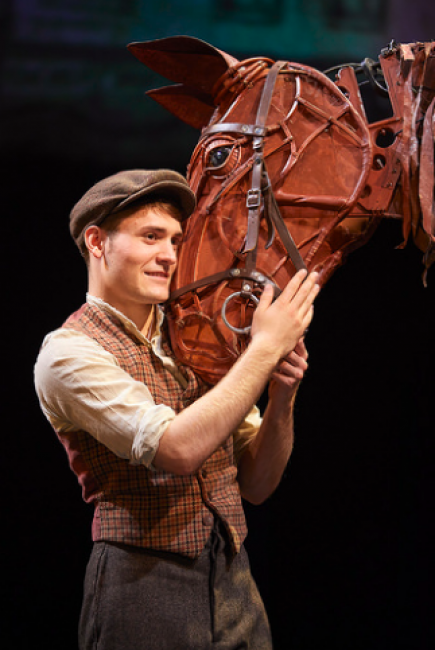 PHENOMENON: The classic story’s been turned into both a film and play
PHENOMENON: The classic story’s been turned into both a film and play
Each step feels supremely real and with every shake of the tail, ear twitch and mane swish, Joey and the other horses were perfectly brought to life right in front of our eyes.
The structures themselves, forming almost translucent, open shells with visible cogs and levers, even give an apt nod to the changing times and modernisation. As we see the mechanisation through war, from horses and swords in the cavalry to industrialised weaponry and tank offensives – the puppets are positioned somewhere within that transition, just as Albert and Joey are.
Whilst the story of War Horse is unusual, placing an animal at the centre of events, any World War I play could become lost in the consuming violence and sadness those four years entailed. Instead, the production is given an emotionally compelling and physically unique focal point through the puppetry.
War Horse shows it is not afraid of approaching the emotional devastation left by death in war, alongside the beauty of life and unwavering hope for the future.
*War Horse is showing at The Lowry, Salford until Saturday, June 30. You can buy tickets HERE.

